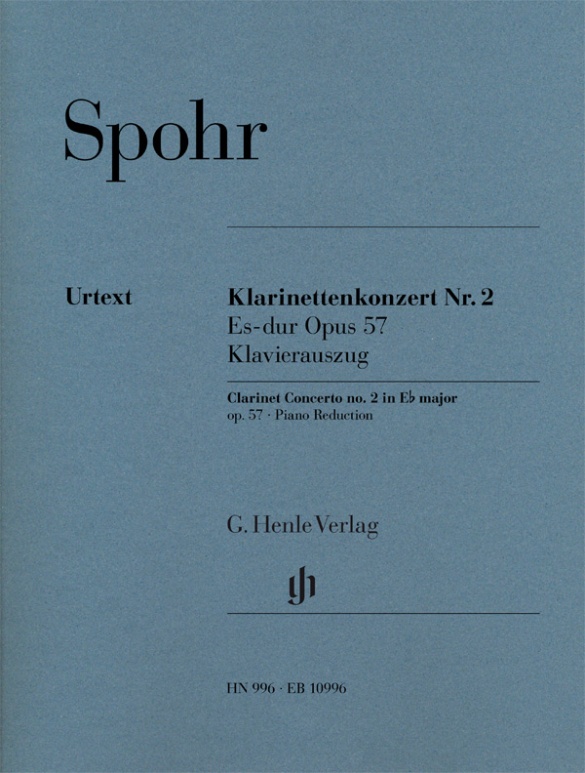

Louis Spohr
Clarinet Concerto no. 2 E flat major op. 57
Louis Spohr’s concertos have long been a standard feature in the clarinet repertoire, but up to now they have suffered due to a lack of reliable editions. In order to fill this gap, G. Henle Publishers is now following its edition of the Concerto no. 1 in c minor (HN 995) with a critical edition of the Concerto no. 2 in E flat. This is the only one of Spohr’s four clarinet concertos in a major key, and its buoyant atmosphere and joie de vivre remain captivating – especially in the final, “alla polacca” movement. It is hard to believe that this is the first-ever Urtext edition of this concerto! For this edition, Ullrich Scheideler has consulted both the first edition of 1822, published in Leipzig, as well as an important early manuscript. A new, practical, easy-to-play piano arrangement of the orchestral accompaniment has been made by Christoph Sobanski. The orchestral parts may be hired from Breitkopf & Härtel.
Content/Details
About the Composer
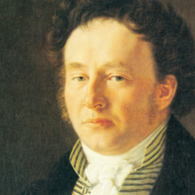
Louis Spohr
Composer and virtuoso violinist who also made important contributions to German opera. He was regarded by many of his contemporaries as one of the greatest German composers.
| 1784 | Born in Braunschweig on April 5, the son of a doctor and a singer and pianist mother. |
| 1799 | Appointed second violinist in the Court Chapel of the Duke of Braunschweig. |
| from 1802 | He accompanies the virtuoso Fr. Eck on his concert tours all the way to St. Petersburg. He receives instruction in violin and gains experience as a concertmaster. After 1803 he undertakes his own travels and rises to become one of the most sought-after violin virtuosi. Numerous compositions, including violin concerti, chamber music, the Symphony No. 1 in E-flat major, Op. 20, and the first three operas. |
| 1805–12 | Concertmaster in Gotha. |
| 1813–15 | Orchestral director at the Theater an der Wien; composition of chamber music and his opera “Faust,” which is premiered in Prague in 1816. |
| 1817–19 | Director of opera and music at the Stadttheater in Frankfurt am Main. |
| 1819 | Premiere of his opera “Zemire und Azor.” |
| 1819/20 | Travels to London and Paris. |
| 1822 | Kapellmeister in Kassel, where he will remain until the end of his life. Primarily director of the opera. Numerous compositions (further symphonies, concerti, piano works, chamber music, songs, oratorios). His “Appeal to German Composers” to compose large-scale Romantic operas. |
| 1823 | Premiere in Kassel of his most important opera “Jessonda,” an important contribution to the development of German grand opera through its replacement of recitatives with dialogues. |
| 1825 | Premiere of his opera “Der Berggeist” (“The Mountain Spirit”). |
| 1827 | Premiere of the oratorio “Die letzten Dinge” (“The Last Judgment”). |
| 1843 | He performs Wagner’s “Der fliegende Holländer” (“The Flying Dutchman”) in Kassel. |
| 1859 | Death in Kassel on October 22. |
Product Safety Informations (GPSR)

G. Henle Verlag
Here you can find the information about the manufacturer of the product.G. Henle Verlag e.K.
Forstenrieder Allee 122
81476 München
Germany
info@henle.de
www.henle.com
推荐
autogenerated_cross_selling
本书目其他版本
本书目其他版本


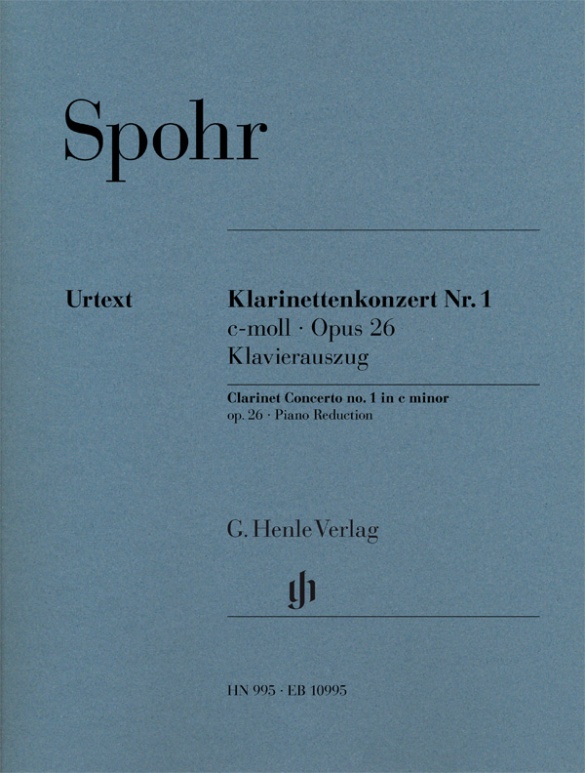

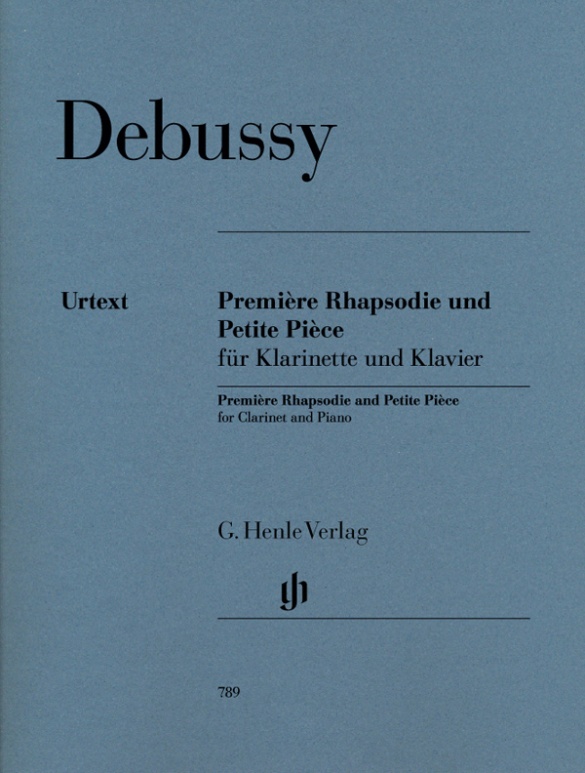
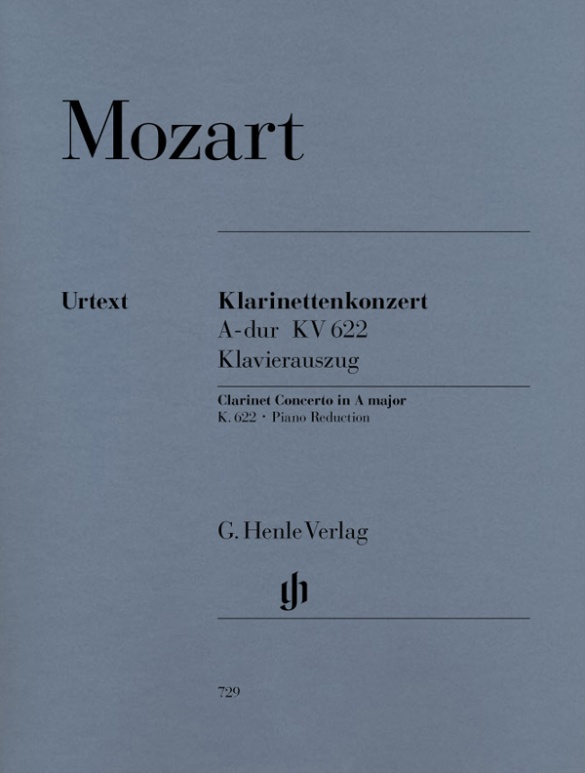
Orchestral material from Breitkopf & Härtel